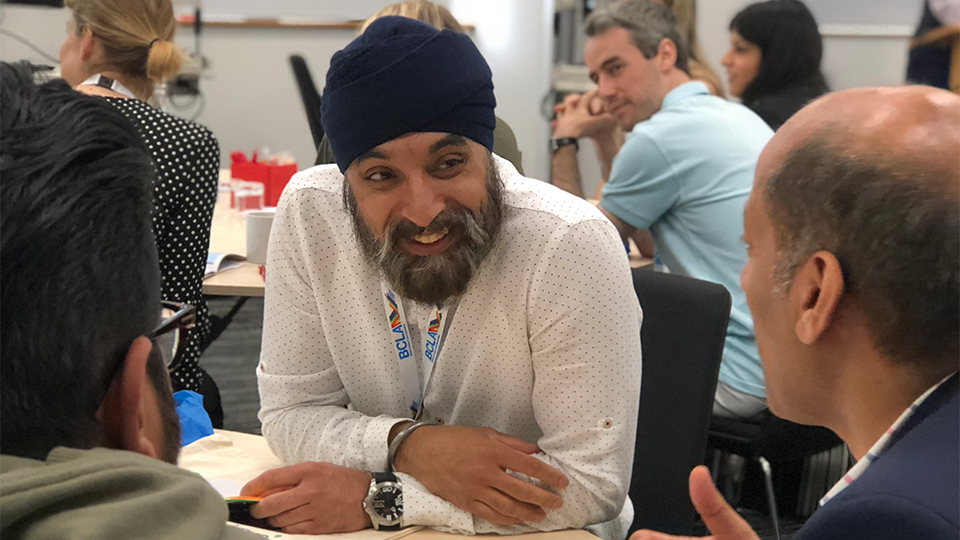- OT
- Professional support
- Optical organisations
- BCLA programme delivered by “the best in the field”
BCLA programme delivered by “the best in the field”
OT speaks to the association’s president ahead of the second date of BCLA UK 2018

08 June 2018
President of the British Contact Lens Association (BCLA), Keith Tempany, told OT that its 2018 conference and exhibition has “something for everyone.”
Speaking to OT at the first event in Birmingham, which was held at the Conference Aston on 4 June, Mr Tempany said: “Over 20 CET points are available, covering most of the major contact lens topics, such as retention, comfort and materials.”
BCLA UK 2018 is being held in two cities, with the second event taking place at IET Savoy in London on Sunday (10 June). The BCLA president explained the decision to have split destinations was taken to make its programme available to more people, which he said is delivered by “the best in the field.”
“The first two lectures were on retention through comfort of the ocular surface, with some very good pointers from Dr Shehzad Naroo [reader at Aston University]. Also, Dr Michael Read [new technologies manager at Eurolens Research, University of Manchester] talked about choosing the right materials for your patient and how to utilise our skills as contact lens prescribers in choosing the right materials for the patient,” Mr Tempany said.
In the afternoon, the BCLA president introduced an exclusive speaker for the Birmingham event, director of research for the ophthalmic research group at Aston University’s school of optometry, Dr Nicola Logan.

Dr Logan discussed current myopia research and the evidence behind management strategies. She was followed by psychologist and associate fellow of the British Psychological Society, Dr Claire Hallas, who explored the psychological drivers that influence the decisions taken by parents when considering contact lens options and myopia treatment for their children.
Mr Tempany enthused: “It’s brilliant to introduce a psychologist for the first time to the BCLA conference.”
“Fitting children with contact lenses can be challenging at the best of times because we have this three-way conversation with the patient and the parent. We know the benefits of fitting contact lenses for children on many levels and it’s really interesting to understand the psychological drivers in the treatment decision for parents to say yes or no to contact lenses. This helps practitioners relay our information in a better way for them to understand,” he added.
At the event, the BCLA is also promoting its management of dry eye and contact lens retention certificate. Free to complete for BCLA members, the certificate is designed to help practitioners stand out from the crowd when treating dry eye.
Mr Tempany explained to OT: “What we’re hoping to do is provide a good level of skills so the public has confidence when they book in to see a practitioner with the BCLA certification. They are going to get someone who knows dry eye and the ocular surface incredibly well. The second avenue is that we’re bringing the standards up, we’re bringing the skillset of practitioners up to a level which is very high.”
For further information on BCLA UK 2018, visit the event website.
Advertisement

Comments (0)
You must be logged in to join the discussion. Log in